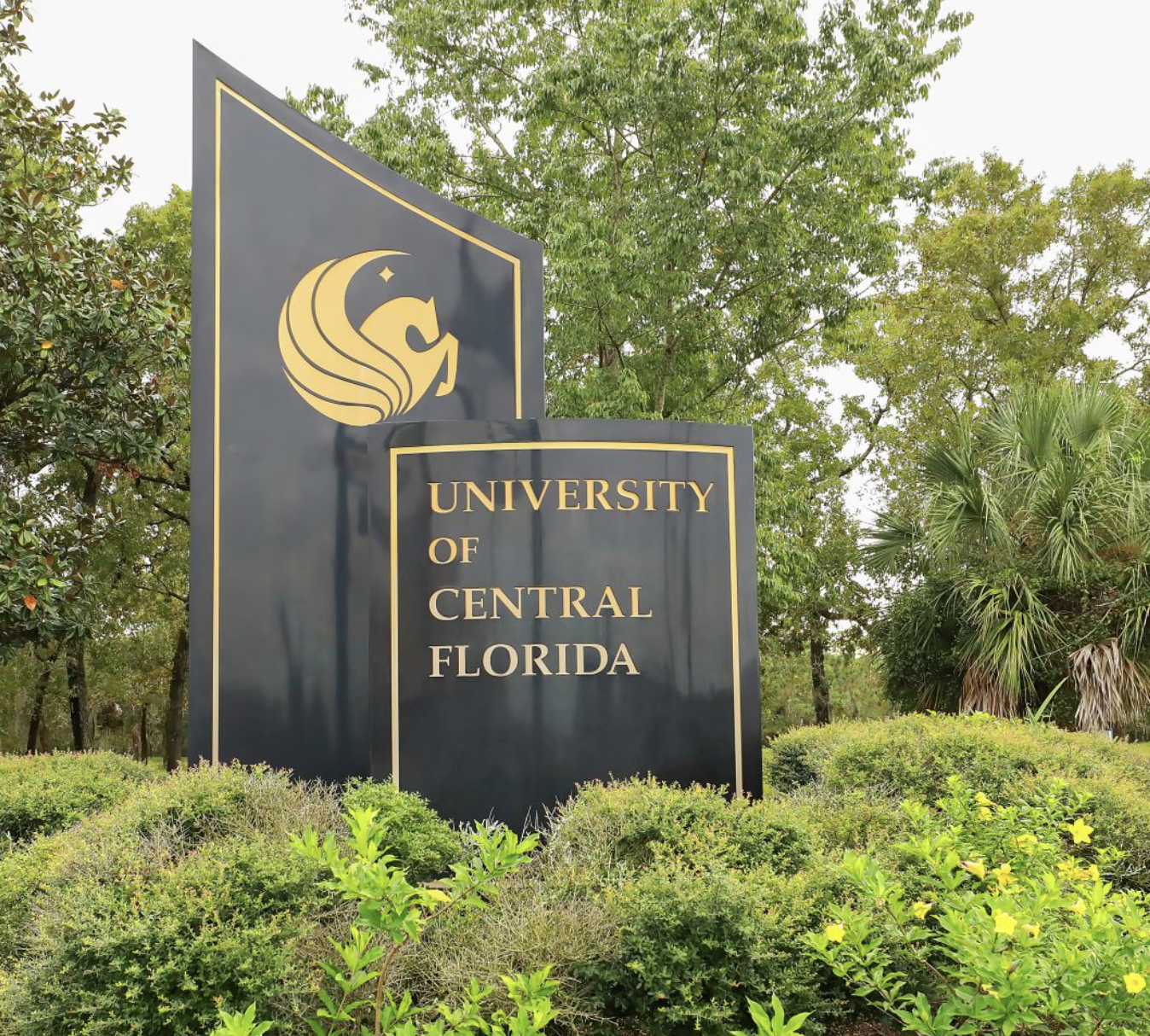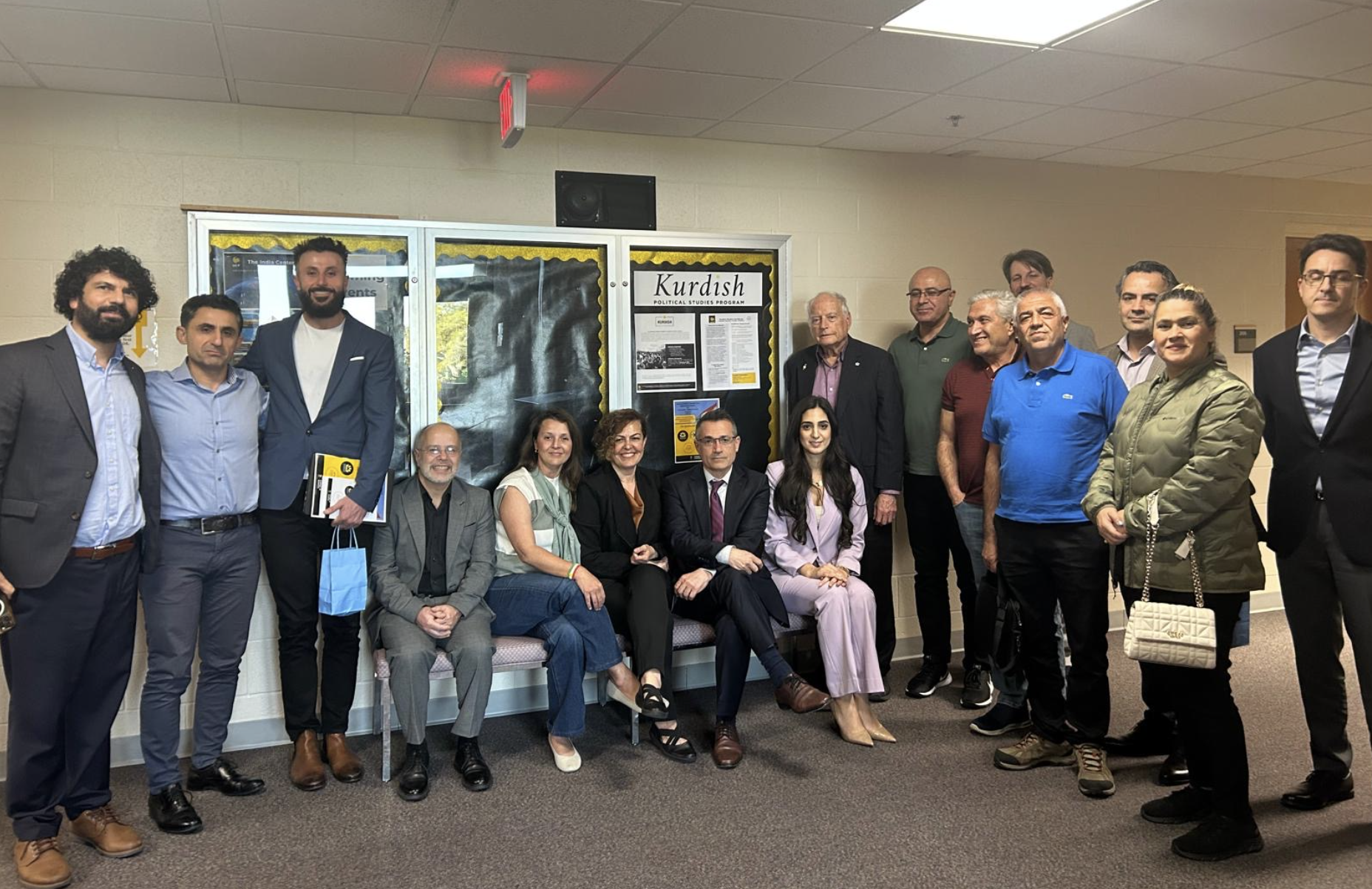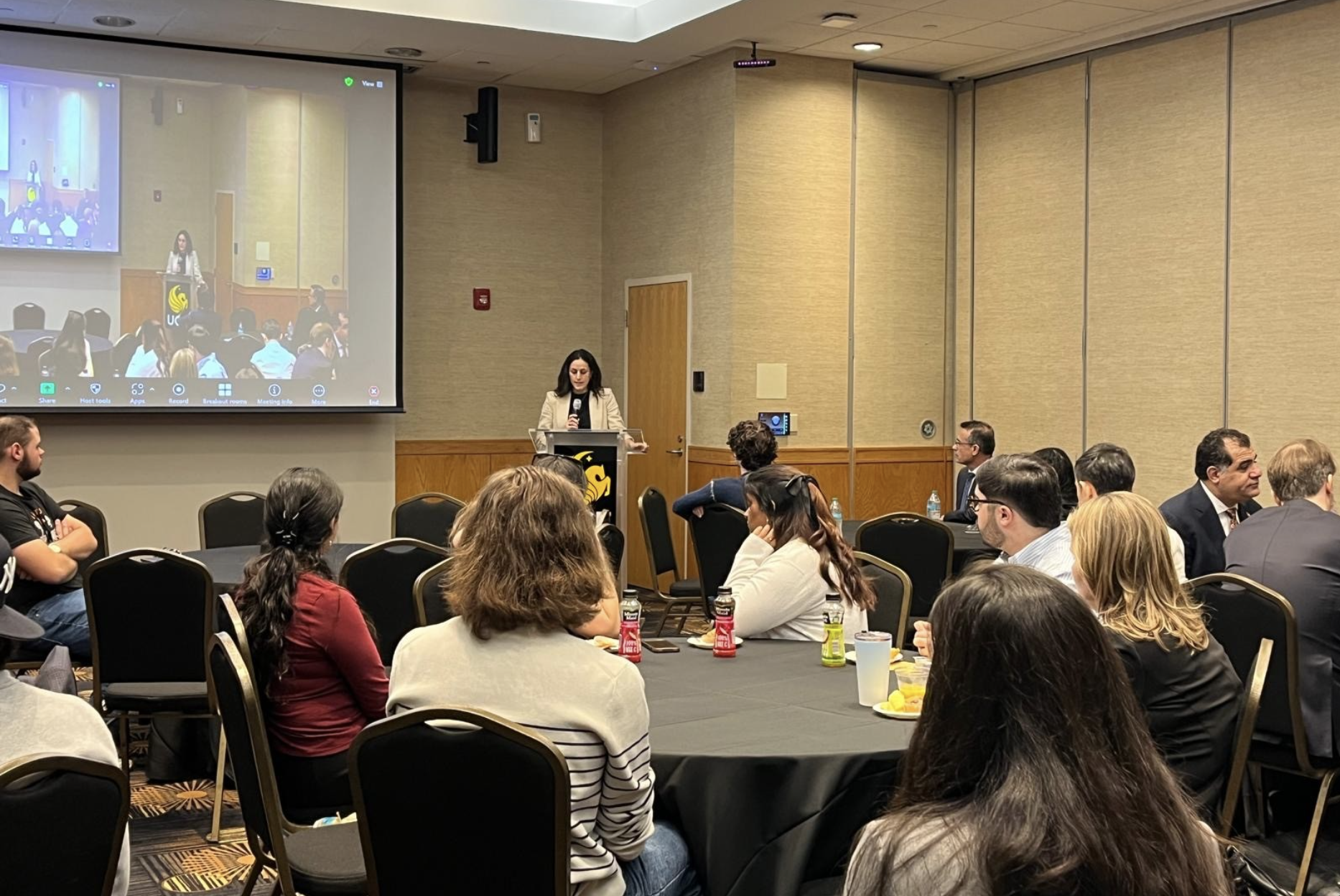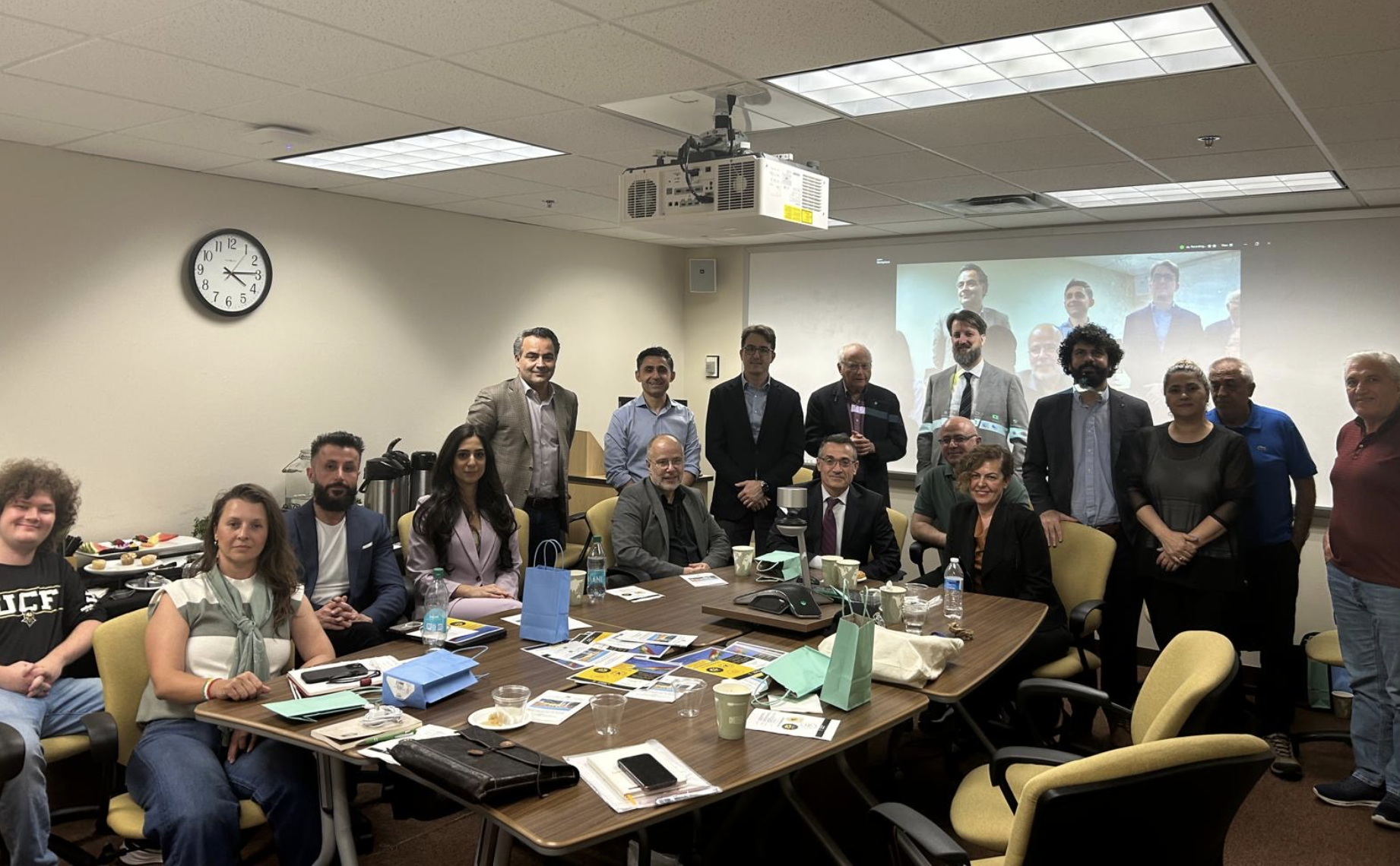The Kurdish Political Studies Program at the University of Central Florida (UCF) recently hosted the conference “Kurds on the Global Stage: Clashing Identities, Interests, and Perspectives” held from February 27 to 28, 2025. The event was funded by the Serbest Foundation and the Washington Kurdish Institute (WKI).
Established in 2015, the Kurdish Political Studies Program at UCF has played a pioneering role in expanding knowledge and understanding of the Kurdish issue in the United States.
Sierwan Najmaldin Karim, President of the WKI and son of the late Iraqi Kurdish politician Najmaldin Karim, explained the aims of the program founded by his father. “It legitimizes and formalizes the study of the Kurdish nation, placing their history, language, and culture within scholarly discourse. Through research, documentation, and education, the program also helps preserve Kurdistan’s heritage, especially when it is at risk of erasure,” he told Kurdistan Chronicle.
“Members of the stateless Kurdish nation gain access to academic tools and platforms to tell their own stories and contribute to the global narrative. The advisory board includes longtime friends of Kurds. The new director, Professor Mehmet Gurses, has done an excellent job and is dedicated to making the program a success.”

Ensuring international recognition
Mehmet Gurses, the Najmaldin Karim and Jalal Talabani Chair of Kurdish Studies, joined UCF in August 2024. “This is only my second semester at UCF and my first conference here. I’m thrilled to welcome guests from Iraqi Kurdistan, Russia, Germany, Holland, the UK and the United States,” he said.
“This is the only academic program in Kurdish political studies and is truly one of a kind. Established through a generous contribution from the late. Najmadin Karim, the program not only advances Kurdish studies, but also increases Kurdish visibility,” Gurses told Kurdistan Chronicle.
“One of the reasons I organized this conference and chose the title ‘Kurds on the Global Stage’ was to ensure that the Kurds receive the recognition they deserve from the international community,” he added.
Metin Serbest – President of the U.S.-based Serbest Foundation, a nonprofit dedicated to preserving and promoting Kurdish heritage – emphasized their mission to advance Kurdish academic discourse globally.
“Since launching our inaugural conference series in 2017 at Northwestern University, the Serbest Foundation has continuously supported and co-organized academic events with top-tier institutions,” he said, citing partnerships with Northwestern University, Yale University, and UCF.
“These conferences have brought together leading and emerging scholars in Kurdish studies to engage in rigorous dialogue, exchange ideas, and present groundbreaking research. Through these contributions, the Serbest Foundation has helped Kurdish studies flourish, supporting scholarship that informs both academic institutions and public discourse worldwide.”

The rapidly evolving role of the Kurds
The Kurdish Studies Program is housed within the UCF’s School of Politics, Security, and International Affairs, where Gurses serves as a professor of political science. “Upon joining the School of Politics, I simultaneously became the director of the Kurdish Political Studies Program. The school also offers a range of specialized programs and courses,” Gurses added.
The school hosts a PhD program in security studies, admitting 7-8 fully funded students annually. Each year, at least one PhD student focuses on Kurdish studies.
“Currently, we have one PhD student researching Kurdish politics, and next year, I hope to admit two more, one from Iran and one from Turkiye. This will bring the total number of PhD students working on Kurdish issues to three – a first for UCF – and I’m very excited about this milestone,” Gurses said.
The conference itself featured speeches by lawyers, academics, journalists, retired diplomats and military officials, and Kurdish officials, including retired U.S. Army Lieutenant General Jay Garner, former U.S. Under Secretary of the Army Joe Reeder, Kurdistan Regional Government (KRG) U.S. Representative Treefa Aziz, and former U.S. Ambassador to Croatia Peter Galbraith.
“Comprising more than 40 million people, the Kurds are a key player in the Middle East and yet are only superficially known in policy circles and largely unstudied in Western academic institutions,” Galbraith told Kurdistan Chronicle.

He added that the UCF conference provided a rare opportunity for scholars and practitioners to “consider the rapidly evolving role of the Kurds in the region and beyond. Even after following the Kurdish issue professionally for more than 40 years, I gained new insights from my fellow participants.”
During the conference, Representative Aziz expressed gratitude to the Kurdish Studies Program at UCF for hosting the conference. “On the behalf of the KRG, I’m honored to participate in and engage with you all today on the role of Kurds on the global stage,” she said.
Aziz emphasized the importance of the long-standing partnership between the Kurdistan Region and the United States in advancing stability, security, and progress. “The United States has been a critical ally in supporting the Kurdistan Region’s security, particularly in the fight against terrorism,” she stated, noting the U.S. role in strengthening the Kurdish peshmerga forces.
Aziz also underscored that coordination between the Kurdistan Region and the U.S.-led coalition has been instrumental in dismantling ISIS’s territorial operations. However, she warned that ISIS “remains a deadly threat, making the coalition’s continued presence essential for long-term stability.”

Diverse perspectives on Kurdish-related issues
Meanwhile, Professor Gurses stressed that the conference aimed to present diverse perspectives on Kurdish-related issues. “While academics cover Kurdish politics and society, they are not the only voices. We also have journalists who play a key role, as well as businesspeople active in the Kurdish community in the United States.”
“We had participation from people across different walks of life, so although the presentations were scholarly and high-level, the event was not narrowly academic,” he added.
“This is a very important event,” said David Romano, the Thomas G. Strong Chair of Middle East Politics at Missouri State University in the United States. “We have had a Chair in Kurdish studies here for some time, but I don’t recall a major conference like this before. With Professor Gurses now leading the program and organizing events like this, we may see UCF become a linchpin for Kurdish studies throughout North America.”
In the future, Gurses plans to invite individual speakers, including Kurdish musicians and successful Kurdish businesspeople from the United States and abroad.
“I would like to invite individuals in the United States who exemplify the Kurdish American dream. There are many accomplished Kurdish businesspeople, and I hope to honor their achievements while helping them reconnect with the Kurdish community in both the United States and Canada,” he said.

